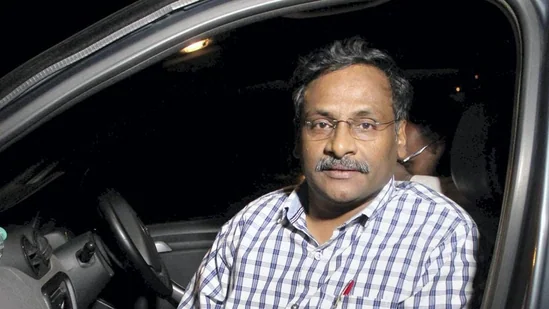Former professor at Delhi University (DU) Prof. G N Saibaba, who was sentenced by a Session Court for life imprisonment for his alleged association with banned CPI (Maoist) died after suffering a heart-attack on Saturday, October 12. The 57-year-old was undergoing treatment at a state-owned hospital in Hyderabad.
Saibaba was charged with serious allegations of having ties with the banned outfit, its frontal outfit, Revolutionary Democratic Front (RDF) and arranging meetings between the members of the group, for which he was sentenced to a life-term in the year 2017.
The former professor of English at DU was first arrested by police in the year 2014 and was booked under Unlawful Activities Prevention Act (UAPA) alongside five others including a journalist and a student of Jawahar Lal University (JNU) for alleged Maoists links and indulging in activities amounting to waging war against the nation.
Saibaba and others were reportedly seen posing with Maoist’s literature about which the court stated that they meant to distribute the literature in Gadchiroli in order to urge others to join Maoists.
Imprisonment for life by Session Court
The session court after a trial extending for three years, sentenced Saibaba for a life-term, noting that the wheelchair-bound professor is mentally fit and is a think tank of the banned organization which by its violent activities has brought the industrial and other development in the Maoist-affected areas to grinding halt.
While delivering the verdict, the Session Court had further observed that imprisonment for life is not a sufficient punishment to accused G N Saibaba and the hands of the court are tied in view of the fact that the imprisonment for life is the maximum punishment statutorily provided.
Though the verdict given by the Session Court was set aside by a Nagpur bench of Bombay High Court, who while rejecting the Session Court’s observation acquitted G N Saibaba and four others in October 2022, citing that the procedural safeguards cannot be sacrificed for perceived peril to national security.
Acquittal in March this year
The State Government (Maharashtra) however, moved the apex court challenging the acquittal, hearing on which the SC noted that the accused were acquitted on procedural grounds, without going into the merits of the case. The SC further directed, that the High Court should dispose of the case on merits and in accordance with the law without being influenced by the Nagpur bench’s decision.
Following the SC’s direction, the Nagpur bench of Bombay High Court, acquitted Saibaba and others while noting that the prosecution failed to prove the charges beyond reasonable doubt. The bench while overturning the decision linked to his conviction termed the sanction for prosecution granted under the UAPA as “null and void.” It further noted that the seizure of pamphlets and electronic data from the accused merely demonstrated that they (Saibaba and others accused) were sympathisers of Maoist philosophy.



















Comments